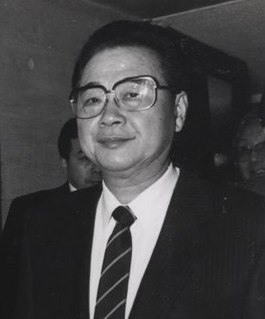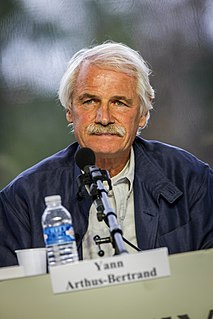A Quote by Bill McKibben
When you go to China and the developing world, people understand more clearly the dangers that are coming at them because they're living closer to the margin. They don't have any of the false sense of invulnerability that Americans have. People from developing countries also feel that it's their right, if you're talking in terms of justice, to use fossil fuels like we did for a hundred years to get rich. It's hard for them to give up that vision.
Quote Topics
Also
Any
Because
China
Clearly
Closer
Coming
Countries
Dangers
Developing
Developing Countries
Developing World
Did
False
False Sense
Feel
Fossil
Fossil Fuel
Fossil Fuels
Fuels
Get
Get Rich
Give
Go
Hard
Hundred
Hundred Years
Invulnerability
Justice
Like
Living
Margin
More
People
Rich
Right
Sense
Talking
Terms
Them
Understand
Up
Use
Vision
World
Years
Related Quotes
I'm good with songs I haven't written, if I like them. I'm glad I didn't write any of them. I already know how they go, so I have more freedom with them. I understand these songs. I've known them for 40 years, 50 years, maybe longer, and they make a lot of sense. So I'm not coming to them like a stranger.
I'm going to work with Dan Clowes. After Charlie Kaufman, it's hard to fill up the gap. It's hard to find somebody who... A lot of writers, I can clearly see the desire of succeeding before the desire of expressing themselves. Sometimes people get upset when you want to be different. You were talking about "whimsical," which is a nice word. But sometimes they use the word "quirky" in the pejorative sense. I get frustrated, because they feel like I'm doing whatever I want, and there is no ground, and I don't really care. They feel it's cynical. But I don't think I have any cynicism in me.
Exporters monitor economic and political policies to the developing world, but the consequences of that have been to make developing countries far more sensitive to the constant fluctuations. Developing countries are not always allowed to support their farmers in the same way as the U.S. or Europe is. They're not allowed to have tariff barriers. They're forced, more or less, to shrink their social programs. The very poorest people have fewer and fewer entitlements. The consequence of this has been that there's been a chronic increase in the vulnerability of those economies to price shocks.
We should certainly not be perpetuating further harm to others or to the environment. Suppose that workers at ExxonMobil are trying to unionize. We have two choices: to help them improve their lives, or to keep away so that their lives will be worse. Neither choice has any effect on use of fossil fuels. So radical organizers can both help them unionize and improve their lives, and convince them to find a different way to survive and work for ending the use of fossil fuels.
Globalization in part means that a lot of people are walking into the room and in some cases becoming influential or even dominant voices in the conversation. Sometimes they are like party-crashers coming in and pushing people around, scooping up the valuables and eating up the food in the frig - bribing political leaders, undermining traditional economies and the ways of life that are interwoven with them, replacing them with new economic models that effectively exploit developing countries for their labor and resources.
As the photographer, it's challenging to make images that read quickly and are powerful, but have enough humanity and compassion. I've worked on these issues in the developing world because that's where the risk to girl's safety and access to education is the highest. But that doesn't mean that we don't have issues in the U.S. or western countries. For me, I focused on the developing world because it felt like the issue was more urgent there.







































